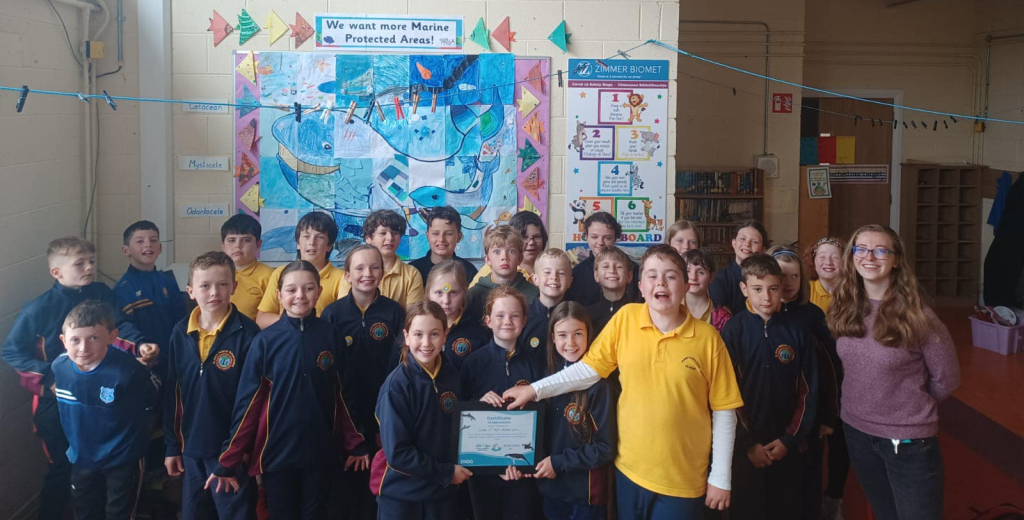
Fair Seas seeks to build a movement of ocean stewardship in Ireland.
As project partners and advocates for an ocean-literate society, the Irish Whale and Dolphin Group (IWDG) want to facilitate a conversation about conservation that is accessible, inclusive and engaging to all. However, many ocean stewardship and conservation movements often neglect to include or disregard the voices of young people.
The launch of Ireland’s Blubber Book, Flukes Junior Vol. 1, in January 2021, was IWDGs first step in providing young people with a comprehensive workbook about marine ecosystems. A combination of dedicated workshops and talks has since brought the content of Ireland’s Blubber Book to life and fueled the innate curiosity and passion of countless primary school students across the Island of Ireland.
Dedicated resources allowed us to raise awareness about whales, dolphins, and porpoises in Irish waters, but a puzzle piece was missing!
How could we harness this newfound passion? How could IWDG’s educational programme enable young people to use their voices and advocate for the marine environment?
I hadn’t a clue. But thankfully, a group of about thirty ten-year-olds did.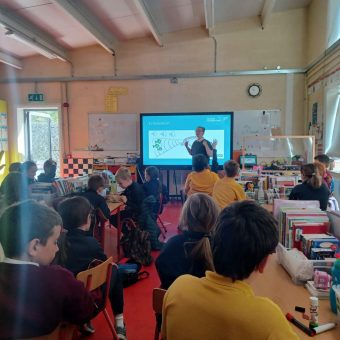
St. Johns National School in Co. Clare were working towards gaining their blue flag and, towards achieving this, participated in an IWDG workshop about the wonders of whales and dolphins in Irish waters. During the workshop, we discussed how marine mammals like whales are ecosystem engineers and are closely interlinked to maintaining the health of the marine food web and even how whales are helping us fight climate change by sequestering carbon dioxide.
Energised, they asked lots of questions and really engaged with the content. Although, I’ll admit we got slightly off track as we explored why whales and dolphins are mammals and, as such, are more like humans than fishes and sharks. Naturally, this spiralled the conversation into a discussion about the extinct megalodon shark. To bring us back to the lesson at hand, I introduced them to the concept of Marine Protected Areas and how they can be used as a tool to prevent biodiversity loss and extinction.
How much of our maritime area is protected? I asked them. Showing their innocence, lots of little hands shot into the air in excitement. They all answered 70, 80 and even 90 percent. But when I finally told them that, unfortunately, the Irish government had only designated a mere 2% of our maritime area, the disappointment was visible in their faces. I explained that although designating and implementing a marine protected area can be a tricky and complicated process for the government, Ireland must meet international obligations by designating 30% of our marine territory as a Marine Protected Area by 2030, a reassuring thought for sure. But, to my surprise, the class seemed sceptical about our government’s ability to follow its commitments.
This scepticism was our missing puzzle piece!
The Irish Ocean Literacy Network describes an ocean literate citizen as one who “understands the importance of the ocean to humankind; can communicate about the ocean in a meaningful way and can make informed and responsible decisions regarding the ocean and its resources.” Instead of blindly accepting our information, they did further research and kept asking questions even after I had gone.
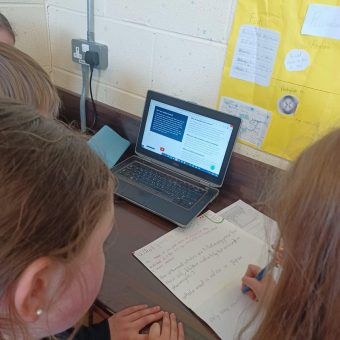
Fourth Class students researching marine protected areas in Ireland after the IWDG workshop. Photo thanks to Niamh O’Dowd and St. Johns N.S.
By doing so, they formulated their own opinions and were able to communicate what they had learned in a meaningful way.
The students could SEA the change that needed to be done, and with the help and encouragement of their teacher, they weren’t shy in expressing it. Several days after our first IWDG workshop, the kids were still talking about the lack of protection for our marine species and habitats and had a list of questions they wanted to answer.
It isn’t often you get a class like this, but when we do, I try and encourage their enthusiasm and interest as much as possible. Thankfully, Niamh O’Dowd, their teacher, is also an environmentally conscious and ocean literate person interested in advocating on behalf of our environment. Niamh was willing to work with the IWDG further and combine her expertise as an educator with our cetacean knowledge allowing us to deliver a very comprehensive education programme that enables students to use their voices constructively, have fun and join the Fair Seas Movement, all while still fulfilling the primary school curriculum needs.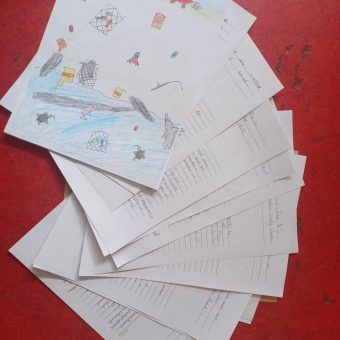
Each student wrote a letter to a government official they chose highlighting their concerns for our marine environment and asking for the designation of a robust, coherent network of marine protected areas by 2030. Based on their in class research and local government electives they were already familiar with the he children chose to write to Cathal Crowe, Joe Carey, Charlie Mc Conalogue and the Taoiseach Micheál Martin.
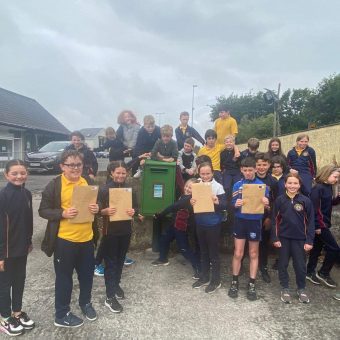 Although, the IWDG or St.Johns school have not received any feedback on the letters to date we are incredibly proud of the hard work all of the students put in and are hopeful that they will receive acknowledgment from the government.
Although, the IWDG or St.Johns school have not received any feedback on the letters to date we are incredibly proud of the hard work all of the students put in and are hopeful that they will receive acknowledgment from the government.

